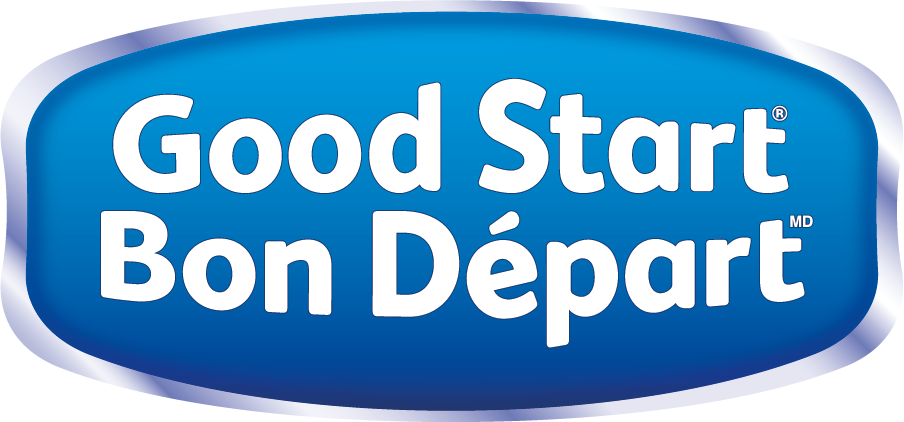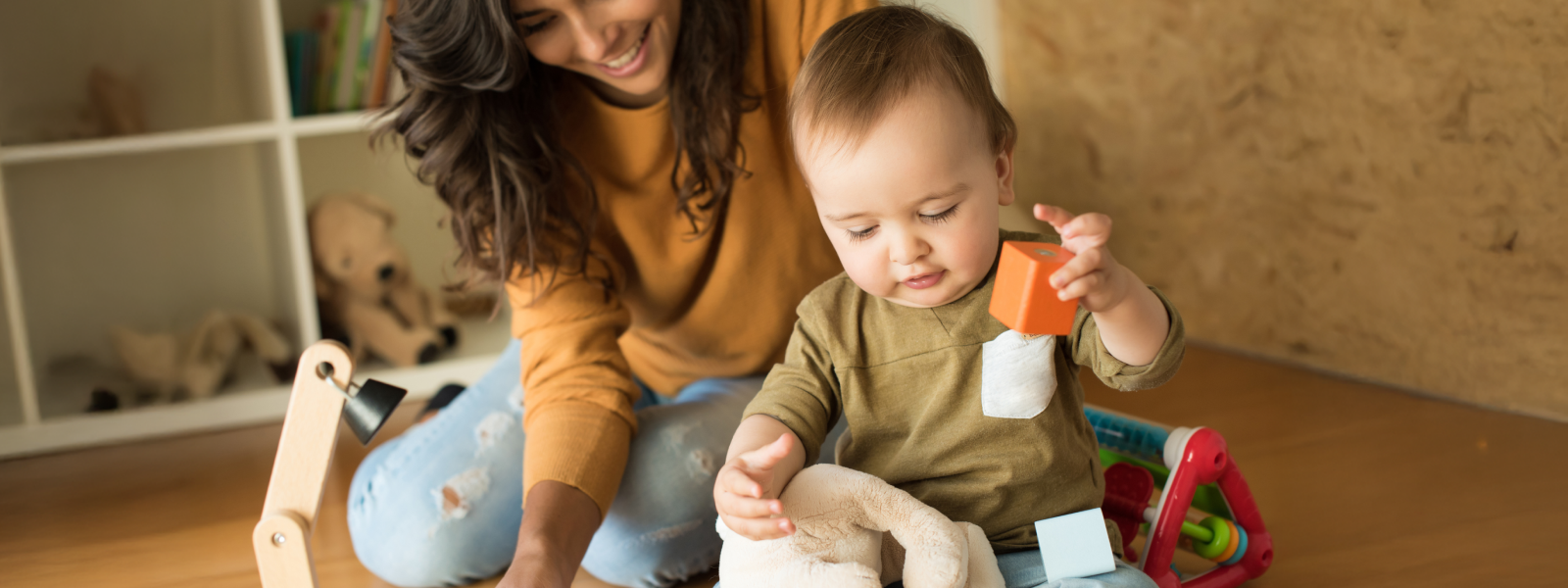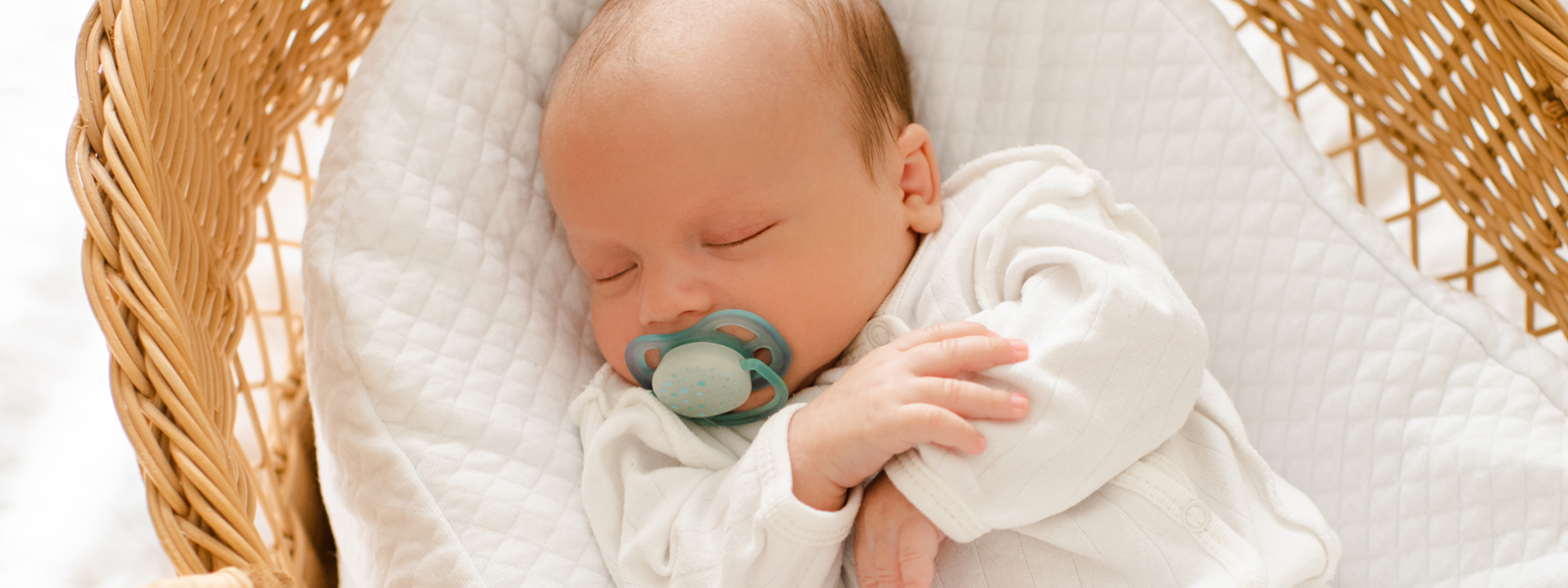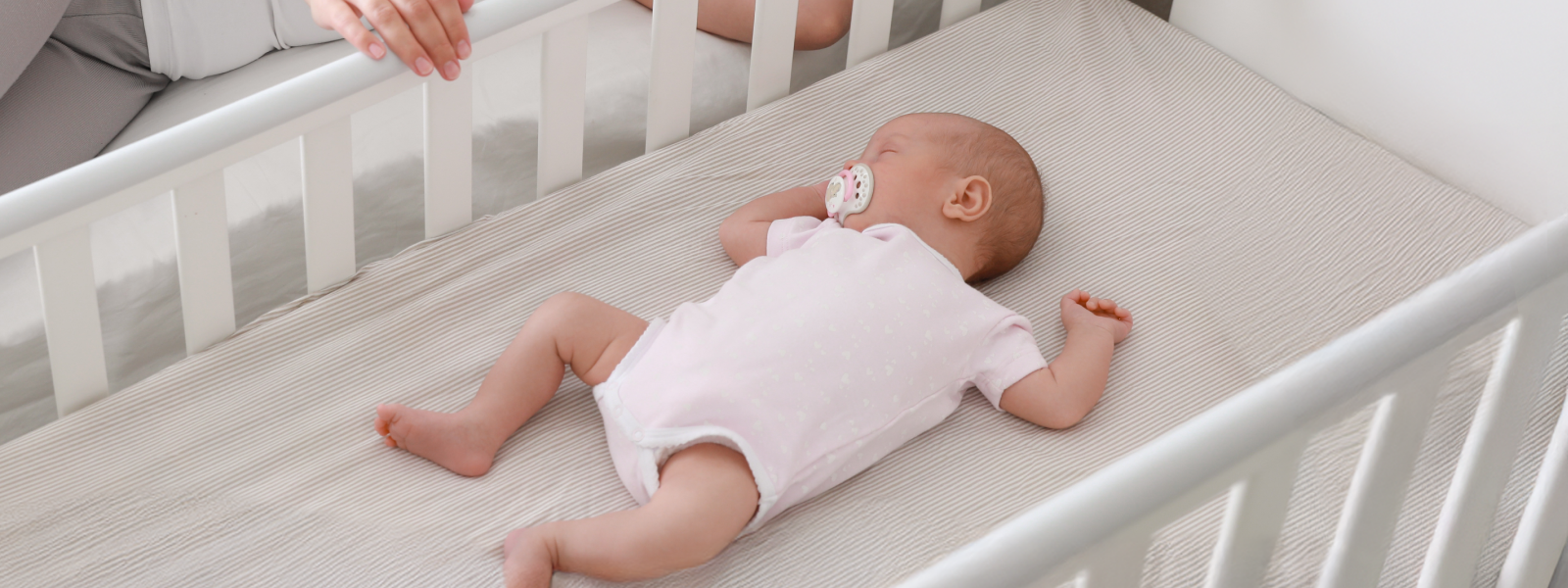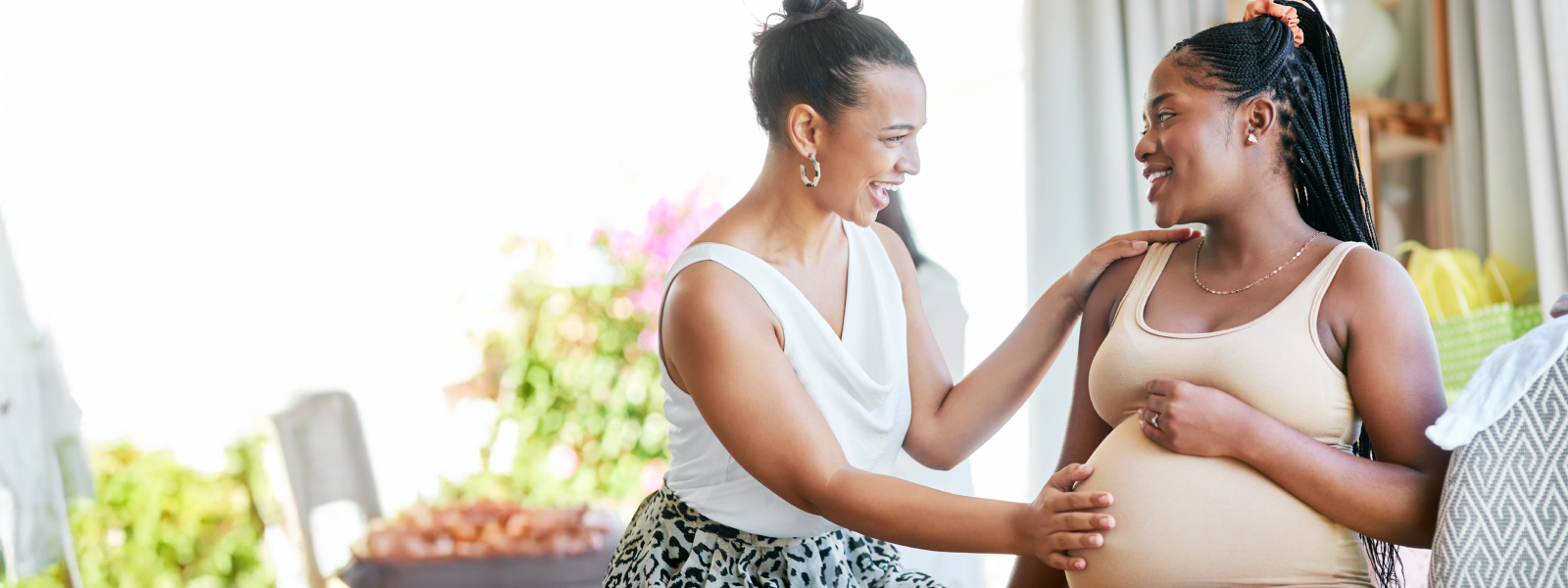In their first few weeks, your baby is using all their senses to explore the exciting new world around them. Here are some milestones you can look forward to in the early months with your little one.
Month 1: Baby is exploring, developing reflexes, and starting to communicate
Your baby will sleep, a lot! By the second week, you may notice your baby crying more frequently, as they begin to communicate their needs. At first all cries will sound alike, but soon enough you’ll start to recognize different types of cries signalling hunger, discomfort, or fatigue. The Moro—or startle—reflex, which happens when a baby is startled by a loud sound or by movement that feels like they are falling, may occur often. Other reflexes will also start to develop.
Tips to stimulate baby’s senses
Hearing: Play soothing music, use your own comforting voice to speak to them (in general babies prefer high-pitched voices), or introduce soft toys that make sounds to stimulate baby’s hearing.
Sight: Capture their attention with black-and-white patterns, high-contrast mobiles, and your smiling face.
Touch: Engage their sense of touch with soft blankets and toys.
Expect to see your baby:
- Lift their head slightly to strengthen their neck muscles.
- Track objects close to their face.
- Blink in response to bright lights.
- Turn toward familiar voices.
- Grip your finger (the grasp reflex) or respond when you touch the corner of their mouth, which activates the rooting reflex and helps baby latch for breastfeeding.
Month 2: Smiling and cooing are baby’s ways of talking to you
Your baby is becoming more alert and responsive now, taking in everything around them. They may smile or coo to show emotions, respond to familiar sounds, or when they recognize you and your partner. Your little one will start to communicate with sounds other than crying.
Tips to nurture their social development
- Spend time talking, reading, and singing to your baby to help them develop their social skills.
- Talk back soothingly to your baby when they make sounds. This intimate face-to-face time will strengthen your bond and help them grasp the rhythm of conversation.
- Engage your baby’s attention with bright, colourful toys.
Expect to see your baby:
- Push their chest up with their arms during tummy time to develop muscles and coordination.
- Go silent, cry, or act startled in response to loud sounds.
- Repeat “oohs” and “aahs.”
- Focus on small objects as they work their eye muscles.
Month 3: Baby is building trust
By the third month, your little one will begin developing confidence and will start to associate actions with outcomes, such as calming down at the sound of your voice. By consistently meeting your little one’s needs, you can help build your baby’s sense of trust and foster their sense of safety and security. You can help develop their communication skills by talking, singing, and reading to them. Use simple language with them and pronounce words clearly.
Expect to see your baby:
- Bring their hands together and start reaching for things.
- Explore by sucking on fingers and other objects.
- Maintain eye contact to learn to focus.
- Turn toward your voice and recognize sounds more clearly.
Top takeaways
Watching your baby grow, use their senses, and start to communicate is incredibly exciting! Remember that babies reach developmental milestones at their own pace. Talk to your doctor if you have questions about your baby's progress.
Rourke Baby Record. Updated 2024. www.rourkebabyrecord.ca Accessed March 2025.
American Academy of Pediatrics. HealthyChildren.Org. Hearing and making sounds: Your baby’s milestones. Updated February 22, 2021. https://www.healthychildren.org/English/ages-stages/baby/Pages/Hearing-and-Making-Sounds.aspx#:~:text=They%20will%20recognize%20and%20respond,accordingly%2C%20without%20even%20realizing%20it
Canadian Paediatric Society. Caring for kids.cps.ca. Your child’s development: What to expect. Accessed March 2025. https://caringforkids.cps.ca/handouts/behavior-and-development/your_childs_development

